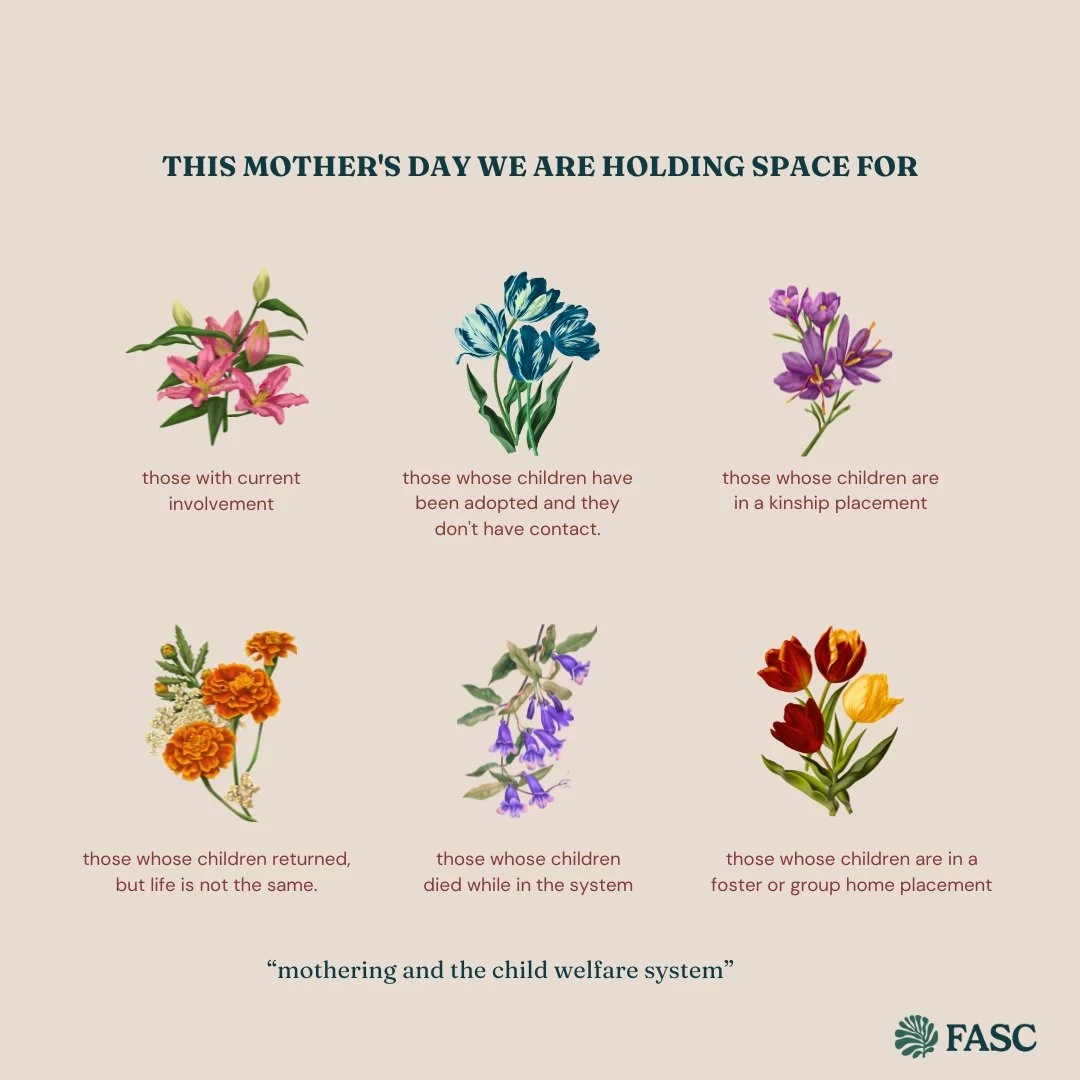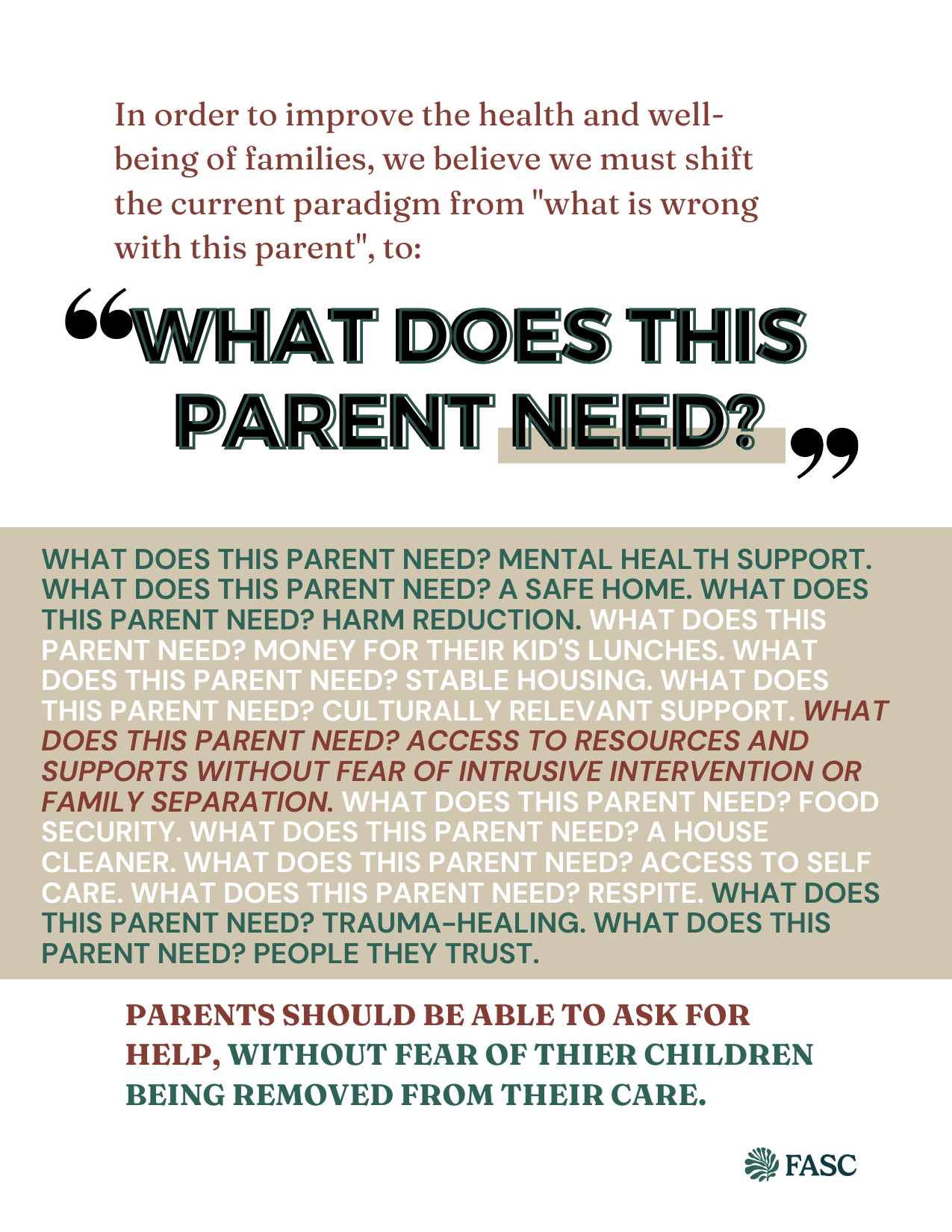Storytelling for Change: Family Advocacy Support Centre (FASC)
Meeting Rebecca, the Founder and Executive Director of the Family Advocacy Support Centre (FASC)
Meeting Rebecca, the Founder and Executive Director of the Family Advocacy Support Centre (FASC), you can't help but feel her dedication to supporting families and challenging systemic biases. FASC is committed to empowering families and disrupting the intergenerational cycle of child welfare involvement. Their mission is to reduce barriers and increase access to legal information, advocacy, and resources. Rebecca’s passion is deeply rooted in her background in social work and her personal experiences as a parent.
From Social Work to Advocacy
Rebecca’s path to founding FASC is deeply personal and tied to her journey as a mother and social work student. As a Black African mother raising two children, she is acutely aware of the additional scrutiny and racism faced by Indigenous and Black mothers within the child welfare system.
While completing her practicum placement, she worked as a parent advocate, providing legal advocacy and system navigation to parents and guardians dealing with Child & Family Services (CFS) or whose children had been apprehended. At that time, Rebecca was a new parent to her young daughter, navigating postpartum depression and other parenting challenges. She reflected on how openly she could discuss her postpartum mental health and parenting struggles and the understanding and empathy she received—privileges not shared by many of the parents she was assisting.
Often, it was mothers who were Indigenous, Black, or low-income—those experiencing domestic violence, substance use challenges, housing instability, and food insecurity—who faced the harshest consequences. They would share how disclosing their mental health struggles or parenting challenges to services providers, was often weaponized against them. Rebecca realized that for many of these mothers, seeking help wasn't an option; doing so could lead to being reported for neglect or, worse, having their children removed from their care.
A Commitment to Anti-Racism and Systemic Change
Rebecca’s commitment to addressing systemic racism and inequity is evident in FASC’s approach. Parents’ experiences and perspectives are often overlooked or ignored in discussions about system change and transformation. In founding FASC, it was crucial for Rebecca to engage with parent-led groups to ensure that lived experiences were integrated into the organization’s work. She credits Lynne Marshalsay, an Indigenous mother, grandmother, and community leader, and Crystal Johnson, a dedicated mother and FASC’s first peer facilitator and parent advisory council member, for their invaluable knowledge and guidance.
Rebecca explained how FASC integrates anti-oppressive and anti-racist principles into its programs. “We can’t talk about child welfare without addressing the racism embedded in the system,” she emphasized. She highlighted the socio-historical context of family separation in Canada, rooted in colonization and slavery, and its ongoing impact on Indigenous and Black families, who are disproportionately represented in the foster care system.
At FASC, language matters. The organization has adopted the term “family regulation system” or “family policing system” to more accurately describe the system’s role in families’ lives—emphasizing surveillance, regulation, and punishment rather than the fostering of children’s welfare. FASC advocates for a reimagined approach to addressing child maltreatment and parental challenges, one that confronts harmful legislation, policies, and practices. This approach considers the needs of the entire family and acknowledges broader structural barriers.
Rebecca is particularly passionate about addressing anti-Black racism within the system, noting that it’s not as widely recognized in Alberta as it is in Ontario, where the Black population is larger. “There’s a lot of work needed to understand how anti-Black racism shows up in the child welfare system,” she noted. Breaking down demographic data to better understand the specific challenges faced by Black families and newcomers is crucial to this work.
Her advice for supporting anti-racism efforts within the child welfare system is clear: challenge assumptions, educate yourself about systemic issues, and focus on what families truly need, rather than placing blame.
Looking Ahead: What’s Next for FASC?
Looking to the future, Rebecca and her team are excited after being awarded a grant from the Alberta Law Foundation to support their community legal education, information, and advocacy programs. These programs are designed to help parents understand their rights and responsibilities, increasing their knowledge and confidence when dealing with Child and Family Services (CFS) and working with professionals and service providers. Importantly, all of FASC’s child welfare legal information and system navigation resources are co-developed by parents who have had system involvement.
Rebecca explained that these workshops are more than just information sessions. “We don’t just want to equip parents with legal information, but also with the skills and tools to advocate for themselves and their children, including tips and strategies from parents who have had system involvement,” she said. FASC aims to increase awareness and education as a means to reduce the need for intervention and system involvement. And should apprehension occur, they strive to increase the chances of reunification and reduce the need for termination of parental rights.
This fall, FASC will begin taking bookings for legal education workshops and trainings for parents and professionals. To book an information session and learn more about their programs and services, you can fill out this booking form.
FASC will also be resuming their Circle of Support groups, which are peer-led groups for mothers who have had or currently have system involvement. These groups are co-facilitated by parents with lived experience. For more information, email info@familyadvocacysupportcentre.ca, through their website here or through their Instagram.
With new funding, expanded programs, and a growing network, FASC is well-positioned to drive advocacy, education, and systemic change. As the organization continues to grow, it’s clear that Rebecca and her team’s passion and dedication will propel FASC to new heights, making a lasting impact on the lives of countless families. Their vision is clear: a world where the voices of parents are heard, and all families have the resources they need to thrive in their homes and communities.
Written by: Bolade Afolabi



